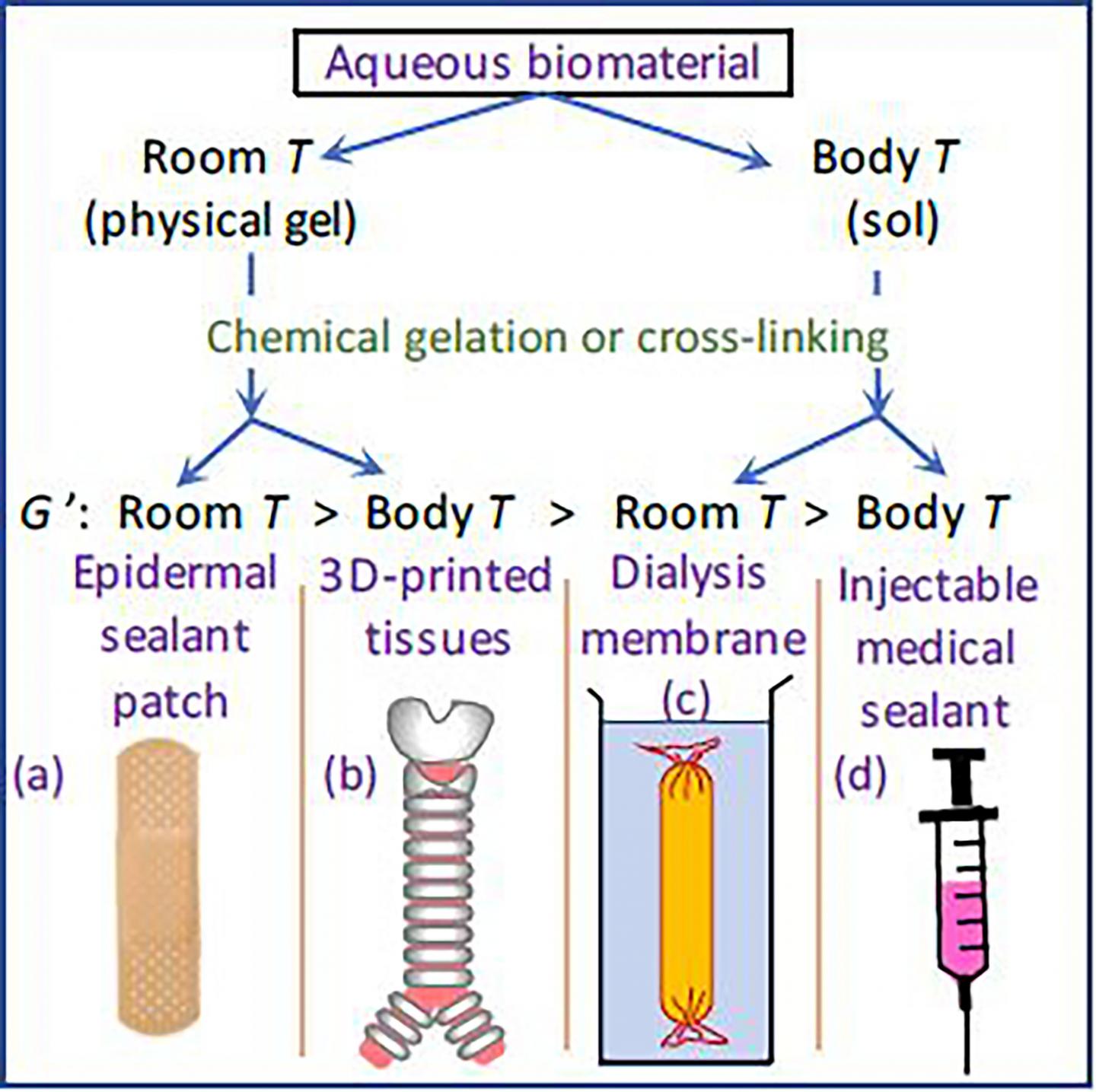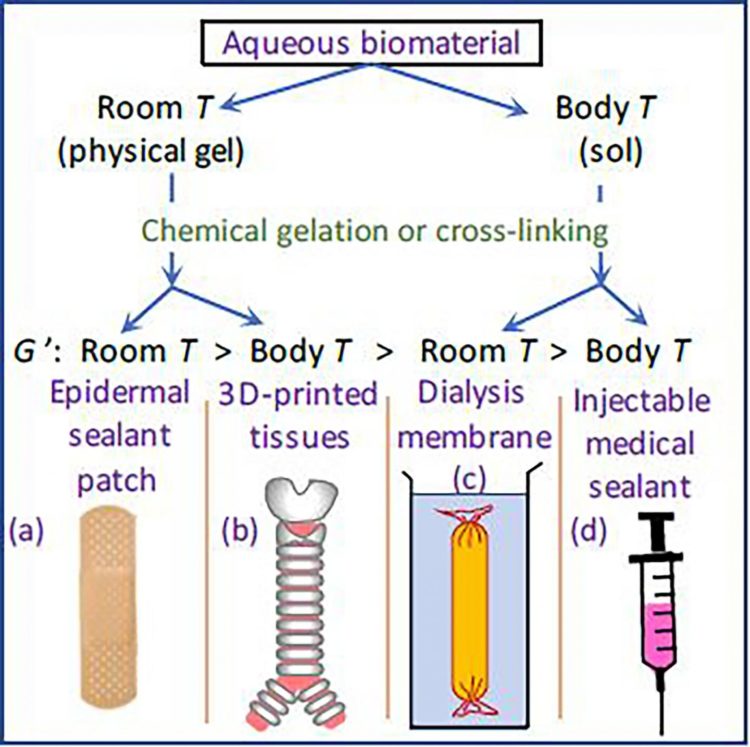Using different temperatures creates sturdier hydrogels for tissue repair, surgical sealants and 3D printing

Credit: Heon E. Park
WASHINGTON, March 24, 2020 — Biohydrogels — biomaterials composed of polymer chains dispersed in water — have been studied closely by researchers for their potential use in biomedical applications, such as in tissue repair, as surgical sealants, and in 3D biofabrication.
Since these gels contain particles in the solid state that are dispersed as molecules in the liquid state, they often move between sols (the liquid form of a colloid) and gels (the soft solid form of a colloid), depending on whether they are at room or body temperature. These changes can pose issues depending on their intended use.
In this week’s Physics of Fluids, from AIP Publishing, researchers in New Zealand, Canada and the United States studied the effect of temperature on hydrogels. They found that creating hydrogels at room temperature or below results in more robust materials that function more effectively when used in the body.
“When we want to create a patch for a lung puncture, we want something that can biodegrade in the body but is, at the same time, very sticky, so it adheres to the lung and is tough, so it can work as the lung expands and shrinks,” said author Heon Park, at the University of Canterbury.
The findings could be very useful in the 3D printing of biomaterials. When printing tissues, such as a piece of a lung, or printing artificial material, such as dialysis membrane, bioink (hydrogel plus cells) is currently stored in a syringe barrel, and it flows out of the syringe through a nozzle by squeezing a piston.
The authors demonstrate that the bioink will flow irregularly like a gel through the nozzle, if the nozzle or the barrel is at room temperature, and this will result in a printed part that is out of shape.
“Our research also shows the temperature of the bioink in the printing syringe should be at body temperature, so that it flows easily when it emerges, and that the printing bed should be room temperature or below, so that the printed part toughens,” said Park.
The researchers also discovered methods for minimizing drying of hydrogels, a problem uncovered in many current studies.
“Big picture, we have shown that the best way to engineer biomaterials that are rigid and sticky is by changing the temperature rather than by reformulating the hydrogels,” said Park.
###
The article, “Effect of temperature on gelation and cross-linking of gelatin methacryloyl for biomedical applications,” is authored by Heon E. Park, Nathan Gasek, Jaden Hwang, Daniel J. Weiss and Patrick C. Lee. The article will appear in Physics of Fluids on March 24, 2020 (DOI: 10.1063/1.5144896). After that date, it can be accessed at https:/
ABOUT THE JOURNAL
Physics of Fluids is devoted to the publication of original theoretical, computational, and experimental contributions to the dynamics of gases, liquids, and complex or multiphase fluids. See https:/
Media Contact
Larry Frum
[email protected]
301-209-3090
Related Journal Article
http://dx.





